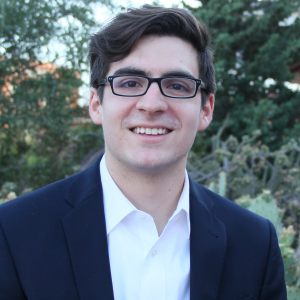LCSR Seminar: David Porfirio, “Robot Application Development: A Shifting Paradigm”
3400 N Charles St
Title: Robot Application Development: A Shifting Paradigm
Abstract:
Interfaces for Robot Application Development (RAD) have proven effective at empowering non-roboticist developers (i.e., robot end users and non-robotics domain experts) to specify tasks for robots to perform. Historically, RAD has adopted development paradigms that have strong ties to traditional computer programming. With recent advancements in robot artificial intelligence, however, there is a pressing need for RAD interfaces to serve instead as communication intermediaries between the developer and the robot. As communication intermediaries, these interfaces should be designed to harness any relevant developer knowledge that is unknown to the robot, while at the same time appropriately leveraging the robot’s intelligent capabilities and communicating this information back to the developer. This talk describes two separate research threads to facilitate developer-robot communication through RAD interfaces. The first thread investigates how interfaces should be designed to appropriately leverage the robot’s knowledge and capabilities. The second thread investigates how interfaces should be designed to elicit relevant tacit knowledge from developers.
 Bio:
Bio:
David Porfirio is an NRC Postdoctoral Research Associate at the U.S. Naval Research Laboratory. His interests lie in designing and evaluating user interfaces that facilitate robot end-user development with the goal of making robot programming more accessible and reliable for non-roboticists. His work has been published in top-tier conferences in both human-robot interaction and human-computer interaction. Prior to his postdoctoral appointment, David received his Ph.D. in 2022 from the University of Wisconsin–Madison (UW–Madison), where he was advised by Drs. Bilge Mutlu and Aws Albarghouthi. During his Ph.D., he was supported by the NSF GRFP, Microsoft Dissertation Grant, and Cisco Wisconsin Distinguished Graduate Fellowship.

